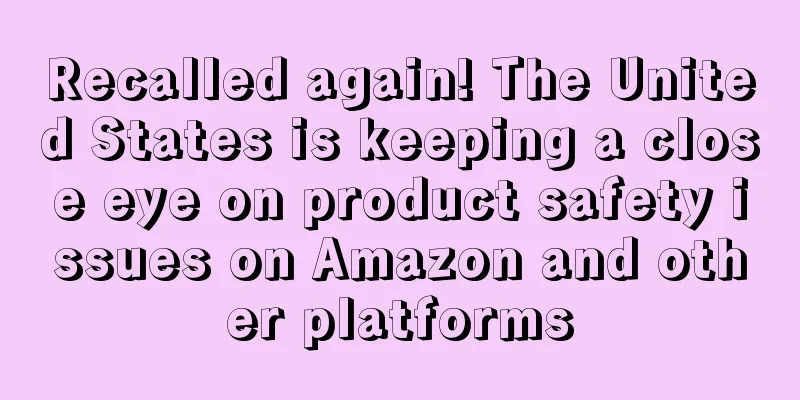Breaking news! Temu has made another big move, and a large number of sellers will be affected

|
Temu limits the number of stores that companies can open
According to industry sources, from January 1, 2025, the number of stores opened under a corporate entity will be limited to 2, and only one full-trusted and one semi-trusted store can be registered.
For many sellers, this new regulation will have a significant impact on their operations.
You should know that according to previous regulations, an individual entity can open 3 branch stores, while a corporate entity can open 20 branch stores.
Therefore, many sellers used to open stores in large quantities to repeat the distribution of goods. Previously, many big sellers used the model of store groups and repeated distribution to quickly eat up the new hot products on the platform in a short period of time.
For example, a product may appear to be sold by more than a dozen stores, but in fact, all of these stores are backed by a single company, which, to some extent, enables price control of the product. However, Temu's new regulations are clearly aimed at sellers who repeatedly distribute products.
However, there are reports that the new regulations will not restrict old stores, which means that stores that have already opened can be retained.
Some sellers believe that the big sellers already have many stores and have made all the money they should have made, while individual sellers did not intend to open many stores, so they are not affected much.
The ones who are really affected are those sellers who want to expand their scale during the growth period. It is understood that when they learned about the news of limiting the number of stores, a group of sellers opened new stores frantically before the window period ended, hoping to seize the last "bonus".
However, whether this approach will be beneficial to the subsequent development of sellers remains unknown.
Temu announced that it would limit the number of stores, which is obviously for the sake of future development. For the platform, the threshold for sellers to open stores was low in the past because the platform needed to quickly expand the number of merchants and product categories in its early stages.
As the platform gradually develops to the next stage, the development focus will shift from quantity to quality, and limiting the number of stores that sellers can open will be the first step.
Some industry insiders speculate that Temu will gradually guide sellers to shift from distribution to refined operations and re-formulate traffic distribution rules. High-quality stores will become the platform's key support targets in the future and will receive more exposure, traffic and promotional resources.
At present, the news that Temu has limited the number of stores has been confirmed by many buyers and sellers.
Temu's next move?
Regarding Temu’s next move, many sellers speculate that the platform’s restriction on the number of stores is precisely to pave the way for the launch of a third-party platform model.
The so-called third-party platform model means that in the future Temu sellers may be able to independently select products and set prices, and directly ship goods overseas, while Temu will extract transaction commissions.
In fact, as early as the beginning of this year, there were rumors in the industry that Temu was planning to launch a third-party platform model (POP), adopting a self-operated plus platform model.
If Temu really launches a third-party platform model in the future, it will be a major strategic shift. For the platform, the POP model will greatly enrich the variety of products on the platform and meet the diverse needs of more consumers.
On the other hand, if Temu adopts the three modes of full hosting, semi-hosting and third-party platform at the same time in the future, the operation and management of the platform will become more complicated. When the semi-hosting model was launched before, many sellers complained about the chaotic management of the platform, and the three modes in parallel will bring greater challenges to Temu's management system.
As for sellers, some e-commerce sellers who mainly operate on domestic platforms may take this opportunity to start their own overseas expansion. They can directly copy the domestic operating model to Temu's third-party platform, and experienced sellers can get started quickly.
However, these sellers need to solve the problem of shipping goods overseas by themselves, which is a big test for the sellers' logistics resources and cost control.
Industry insiders have analyzed that Temu's transformation is actually a common development model for e-commerce platforms. In the early stage, Temu attracted a large number of users and traffic through full and semi-hosting. Currently, Temu's user base is almost comparable to that of Amazon.
After getting traffic, how to sell it is the core issue of platform monetization. The premise of selling traffic is that the seller operates the store by himself. Only when the seller operates the store by himself will there be a need to purchase bidding ads.
In addition, in order to better compete with Amazon, Temu also needs to continuously amplify its platform effect and, through a strategy of running three models in parallel, allow sellers of different sizes to find an operating model that suits them.
Other recent changes to the Temu platform
In December this year , the Temu platform released a number of new regulations covering compliance labels, qualification certification, traffic analysis and other aspects.
First, to help sellers increase traffic, T emu launched a new "semi-hosted traffic analysis function" on December 13. With this function, sellers can reduce the declared price in a short period of time (14 days or 30 days) to quickly increase traffic.
In mid-December, Temu added a new voluntary GPSR labeling agreement. According to the EU GPSR regulations, if the merchant's inventory products lack compliance labels, they will not be able to be sold in the EU market. The T emu platform has launched a confirmation letter about the GPSR European agent entrusting a third party to label. Sellers can choose to sign an agreement and have non-compliant products labeled by a third party. The cost of each product is 0.4 yuan, which can effectively prevent products from being returned or overstocked due to non-compliance.
On December 19, T emu required sellers selling in the US market to register for a US agent and indicate the US agent information in the CPC certificate . Products that fail to provide the US agent information as required will be removed from the shelves.
In addition, Temu also requires all local US sellers to update their identity information to ensure the accuracy of platform information. Relevant sellers must complete the information update before December 31. Temu Seller New regulations |
<<: In just two years, a top Harvard student became number one on the Amazon list!
>>: The bankrupt American platform "resurrected", the first blow was to Amazon
Recommend
What is Yuanchuang Patent Trademark? Yuanchuang Patent Trademark Review, Features
Yuanchuang Patents and Trademarks has long been f...
What is Whale ERP? Whale ERP Review, Features
Whale ERP is a product of Xiamen Tanya Technology ...
A once-in-a-millennium volcanic eruption may lead to a surge in sales of extreme emergency supplies
The epidemic and supply chain crisis have not bee...
Sales exceeded $1 million, these Amazon sellers spent a lot of money on marketing
Not only are shoppers spending more money on Amaz...
What is The Princess and the Pea? The Princess and the Pea Review, Features
Founded in 2015, Princess and the Pea is a Chinese...
What is Bestek? Bestek Review, Features
Bestek is a self-owned brand of Bestek Group, whi...
Second-hand e-commerce company Refurbed opens new site in Ireland! Competing for 10 billion euro market
According to the latest news from RTE, Refurbed, ...
What is Surf2Ship & Surf2Ship Review: Features, Pros & Cons, and Best Use Cases
Surf2Ship is headquartered in Colombo, the capita...
Another hot track! Well-known seller receives nearly 100 million yuan in A++ round of financing
In recent years, the demand for overseas energy s...
What is Ojet Logistics FAQ? Ojet Logistics FAQ Review, Features
Ojie Logistics Q&A is a knowledge community fo...
What is Shenzhen Quanheyue Supply Chain Management Co., Ltd. & Shenzhen Quanheyue Supply Chain Management Co., Ltd. Review
Shenzhen Quanheyue Supply Chain Management Co., L...
eWTP hub promotes the development of digital economy in Southeast Asia, Cainiao Malaysia eHub officially put into operation on the first day of Double 11
On November 1 , the first day of Tmall Double 11 ...
Amazon Prime membership will accelerate overseas expansion
According to foreign media reports , Amazon is re...
What is SellersToolbox? SellersToolbox Review, Features
SellersToolbox focuses on providing business tools...
The growth rate of the e-commerce market will slow down, and opening up one's own market will become a trend!
In 2021, online retail has shown a different deve...









